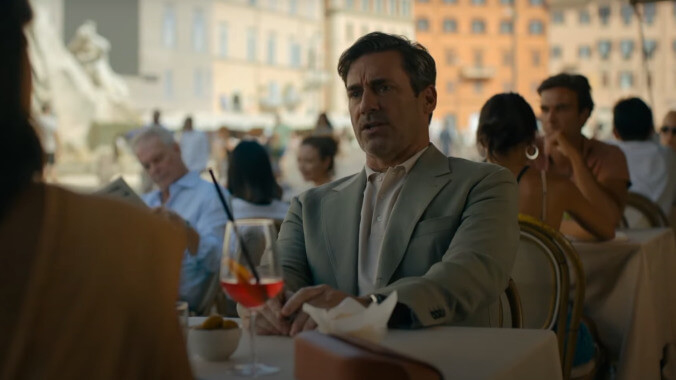Jon Hamm gave back 60 percent of his Confess, Fletch salary to help get the movie made
Director Greg Mottola says he and Hamm pooled resources to buy a few more days of filming on the new comedy

Today, in commitment to your craft/finally making a new Fletch movie after like 25 years news: Jon Hamm gave back more than half of his salary on his new film Confess, Fletch, in order to ensure that the movie would actually be finished. Specifically—and per director Greg Mottola, who was talking to Uproxx—Hamm apparently gave back 60 percent of his salary on the film, buying (along with a similar, smaller donation from Mottola) the production three whole extra days of shooting, bringing the movie up to 30 days of filming in Boston (with 1 extra day in Rome).
Such is the fate of the low-budget comedy film, that oddest of beasts in the current movie-going market. Much of the Uproxx interview with Superbad and Adventureland director Mottola is about his general bafflement about how his movie—which has received generally positive reviews from critics, who mostly enjoyed the ways it hews more closely to Gregory Mcdonald’s Fletch books than the Chevy Chase films from the ’80s—has been marketed, or, more specifically, not marketed. (Consider this your general reminder that Confess, Fletch is in actual theaters, and wasn’t just a direct-to-streaming release—a true oddity for a movie of its ilk in the streaming age.)








































